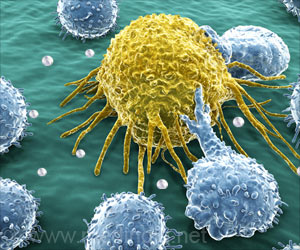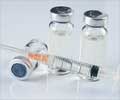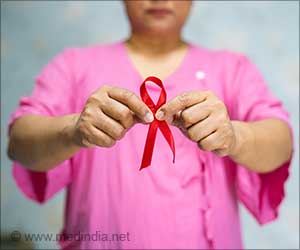To fight cancer, a microfluidic chip has been developed that captures the body’s natural killer immune cells to harvest their cancer-killing exosomes.

‘To fight cancer, a microfluidic chip has been developed that captures the body’s natural killer immune cells to harvest their cancer-killing exosomes which are able to penetrate the tumors easily.’
Read More..




A study conducted in which blood samples were collected from five patients with non-small cell lung cancer showed that the approach was able to capture natural killer cells on a microfluidic chip and use them to ‘farm’ the NK exosomes. The researchers were also able to demonstrate that the exosomes could effectively kill circulating tumor cells in cell cultures.Read More..
Co-lead author of the study, Yoon-Tae Kang, Ph.D., a research fellow in chemical engineering said, “Exosomes are small sacs of proteins and other molecules that are naturally released by almost every type of cell in the body. In this case, we wanted to expand our understanding of NK exosomes and try to harness their cancer-killing potential.”
NK exosomes are stable and easy to modify for therapeutic purposes and they can also help in diagnosis and monitoring cancer.
One of the disadvantages of NK cells is that after injection, they are not able to infiltrate the tumor microenvironment. However, NK cell-derived exosomes contain the same cancer-killing molecules but they’re much, much smaller and are able to penetrate into the tumors.
Harvesting Exosomes
Advertisement
By using a liquid biopsy system called Labyrinth developed at U-M, the circulating tumor cells from patient blood samples were isolated to evaluate the correlations between NK cells and exosomes, and circulating tumor cells.
The researchers found that more NK cells were present in the sample indicating fewer circulating tumor cells. They also found that more tumor cells were in a sample indicate more NK exosomes were present. This shows that the presence of cancer stimulates the NK cells to produce the cancer-fighting exosomes.
Additional experiments showed that circulating tumor cells in cell cultures were killed by the NK exosomes derived from patient samples.
The researchers noted that the exosomes have good potential and can be further engineered and optimized to be more potent and efficient against cancer cells.
Senior co-author Nithya Ramnath, MBBS, an oncologist and professor of internal medicine at Michigan Medicine said, “ Immunotherapy approaches that target immune checkpoints have revolutionized cancer therapy for several cancers. However, only a small minority of patients exhibit a durable clinical benefit and cure. Preliminary studies with NK cells either by themselves or in combination with immune checkpoint inhibitors have, however, have shown only modest results. NK-derived exosomes, on the other hand, are able to home into tumors more effectively. The current paper represents a technological advance in the ability to harvest not only NK cells, but also NK derived exosomes that could help inform future immunotherapeutic approaches.”
Source-Medindia














